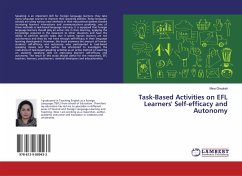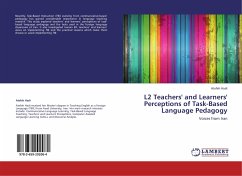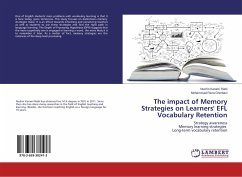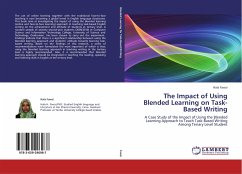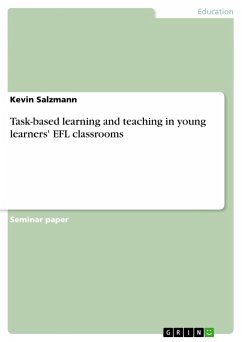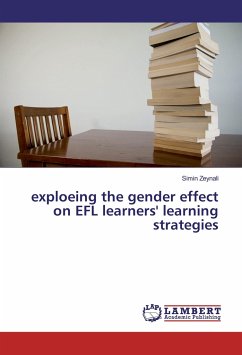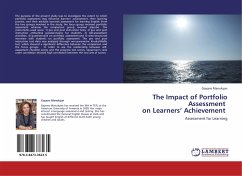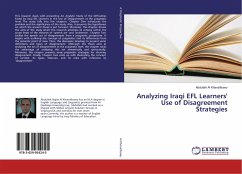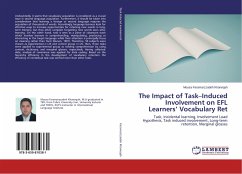
The Impact of Task-Induced Involvement on EFL Learners' Vocabulary Ret
Task, Incidental learning, Involvement Load Hypothesis, Task induced involvement, Long-term retention, Marginal glosses
Versandkostenfrei!
Versandfertig in 6-10 Tagen
41,99 €
inkl. MwSt.

PAYBACK Punkte
21 °P sammeln!
Undoubtedly, it seems that vocabulary acquisition is considered as a crucial issue in second language acquisition. Furthermore, it should be taken into consideration that learning a foreign or second language requires the acquisition of thousands of words. Accordingly, language learners look for effective ways to increase opportunities for retaining new words in long-term memory, but they often complain forgetting new words soon after learning. On the other hand, task is seen as a piece of classroom work which involves learners in comprehending, manipulating, producing or interacting in the ta...
Undoubtedly, it seems that vocabulary acquisition is considered as a crucial issue in second language acquisition. Furthermore, it should be taken into consideration that learning a foreign or second language requires the acquisition of thousands of words. Accordingly, language learners look for effective ways to increase opportunities for retaining new words in long-term memory, but they often complain forgetting new words soon after learning. On the other hand, task is seen as a piece of classroom work which involves learners in comprehending, manipulating, producing or interacting in the target language while their attention is principally focus on meaning rather than form (Nunan, 1991). Therefore, 50 subjects were chosen as experimental n=25 and control group n=25, then, three tasks were applied to experimental group as reading comprehension by using context, dictionary, and marginal glosses, respectively. Having collected data, analysis of covariance was applied for data coding. Based on the hierarchy efficiency in the development of vocabulary retention the efficiency of contextual task was verified more than other tasks.



